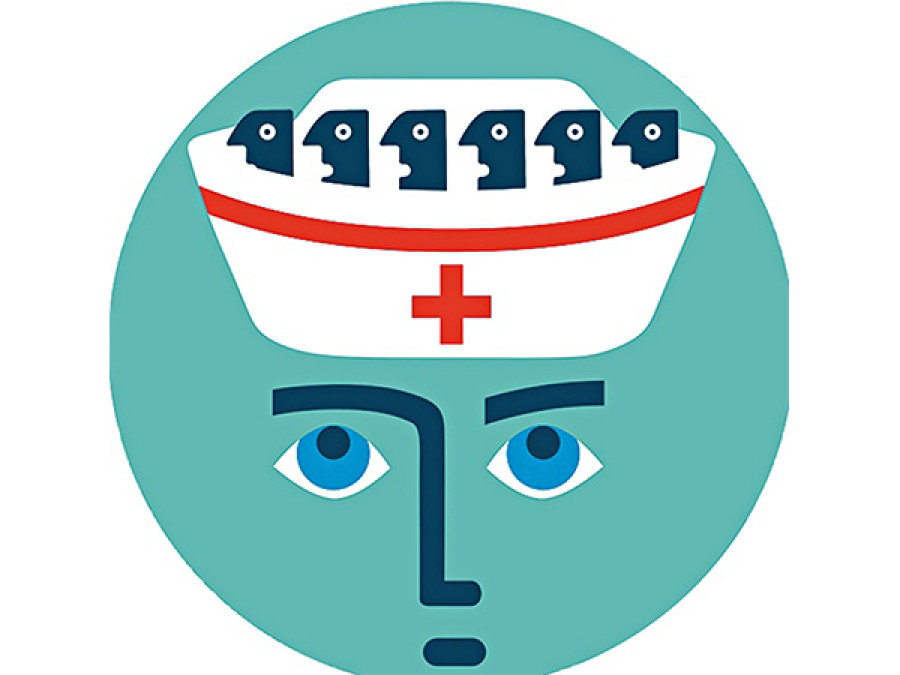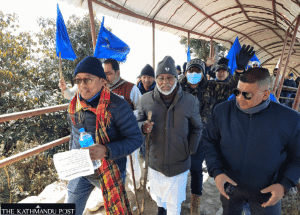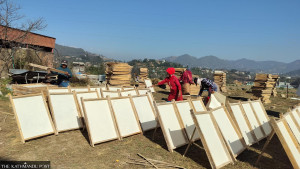Opinion
Nursing the community
Community health nurses are critical parts of the healthcare regimen, and yet, many remain unaware of them
Sumitra Sharma
It is embarrassing to admit, but before I joined a Masters in Community Health Nursing programme at the BP Koirala Institute of Health Sciences (BPKIHS) in Dharan two years ago, I did not know much about community health nurses. I got into nursing eight years ago and community health nursing was part of the curriculum. Yet, I could not properly make out who community health nurses were and what exactly they did.
Whenever one talks about a nurse, a beautiful lady wearing a white coat (mostly with a cap), conducting therapeutic procedures and taking care of patients comes to mind. With changing times and changing lifestyles, the demand for nurses has become extensive. Certainly, the ultimate aim of nursing is to provide therapeutic care, promote well-being, and prevent diseases but the question arises, how are they doing in the present context? More importantly, are hospitals the only places where nurses could work?
A marked absence
Theoretically speaking, the scope of nursing is very broad, but this has not been manifest in practice. Multiple areas of work have yet to be initiated. The demand for community health nurses too is high but very few such nurses are being produced by the country’s universities and colleges. Nursing colleges are also actively in search of competent faculty members to meet the marked demand for such nurses. The reason for the growing demand is primarily the epidemiological and demographic transition the world is going through. In such a situation, the role of nurses is crucial in the prevention of illness and the promotion of health in the community. Yet, there is a marked absence of community health nurses in areas where they could actually work and apply their knowledge of community diagnosis, resource mapping, health education, awareness, and health/nursing interventions.
A large number of health-related activities are being carried out by the government and more recently, by INGOs and NGOs. Such programmes see the participation of many intellectuals from different disciplines. But even in such programmes, the involvement of community health nurses is minimal. Is this because there are few such nurses in the field? Or is it because they are all engaged in faculty development programmes within various universities? Or perhaps it is because community health nurses are not making an effort to look for work in the community. However, it is more likely that people have yet to realise the importance of community health nurses and the potential work they could do for health and developmental activities within communities.
At present, around 80 percent of diseases are attributed to social and behavioural risk factors. People pay visits to hospitals and other healthcare facilities only when they see signs and symptoms of diseases. So much of ill health and suffering is prevalent in the community, but the current health system seems focussed more on curative healthcare, rather than preventive and rehabilitative aspects. Non-communicable diseases like hypertension, diabetes, and cancer are on the rise. Many healthcare activities, like health education, health awareness, surveys, research and studies, camps, and rehabilitation are carried out in household and community settings. But the inclusion of community health nurses in such activities has been rare. Had nurses been part of such programmes, they could no doubt contribute much by acting efficiently and effectively as planners, managers, implementers, researchers, leaders and facilitators. They could even assume multiple roles for preventive, promotive, curative, and rehabilitative healthcare measures.
Include us
As a community health nurse, I have always been inclined to work for and with the community since my early days in nursing. Going by experience, there is a great need for awareness, health education, and motivation among people to seek health services, especially for who are already overburdened with multiple problems. Most people visit health facilities and consult health personnel only when the signs and symptoms of an ailment become vividly tangible and the suffering intensifies. This reality drove me to work in the community and pursue a further degree in community health nursing, which has sufficiently met my expectations till date. It has also helped me look closely understand the various dimensions of ill health that affect the people, inform and counsel them right in their homes, and help them empower themselves with the idea of finding the cause and effect relationship of a particular disease in the community. The practical implication of medical nursing knowledge and skills in the community and integrating them in a public health perspective have been overlooked but are very necessary.
What led me to write this article is the ignorance of people of community health nurses. Not only people from other fields but even those working in the field of health do not know much about us. I hope to see my colleagues and friends working with health and development works in the community in the days ahead but also that they get the recognition they deserve.
Sharma is pursuing an M.Sc in Community Health Nursing at BPKIHS, Dharan




 22.12°C Kathmandu
22.12°C Kathmandu










